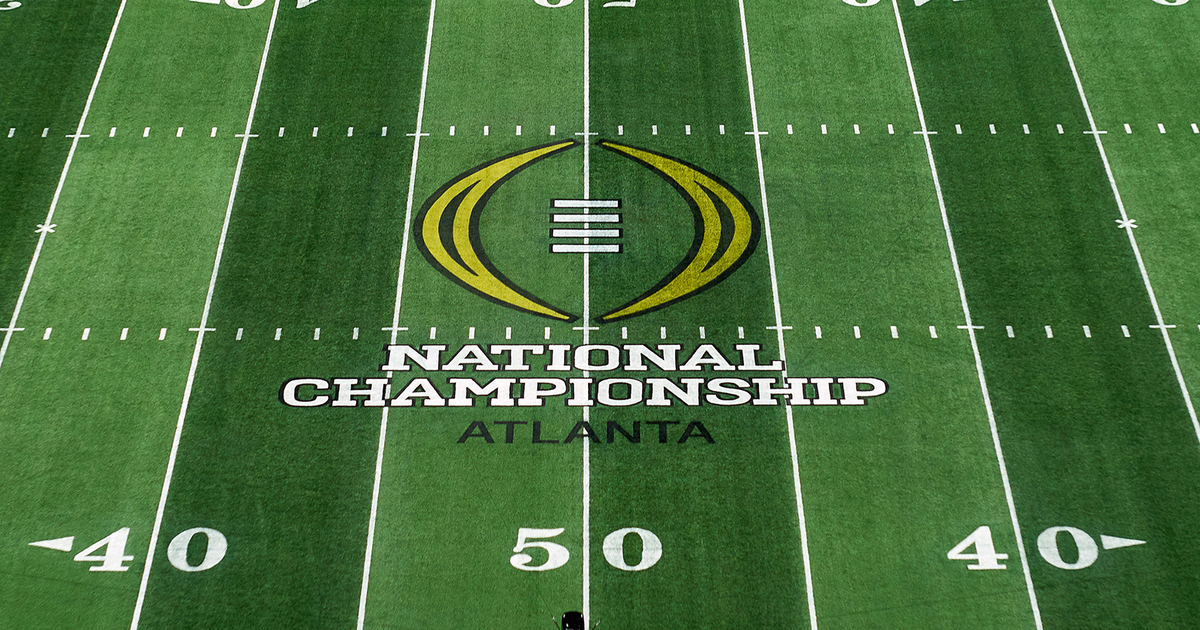Is now the right time to expand the College Football Playoff?


You don’t need a psychologist to tell you that a common human reaction to being denied something is to hanker for more of it.
That’s what we’re feeling right now, as months of emptiness foster an increased hunger for athletic action, all the kinds of sporting goodness that we once took for granted – and more.
No conference has been more represented in the College Football Playoff than the @SEC ? pic.twitter.com/vQcMw03gfB
— FOX College Football (@CFBONFOX) July 1, 2020
That sentiment is now extending to college football, where the noises in favor of enlargement have perhaps never been greater. Once fans got a playoff, they quickly decided they couldn’t get enough of it. Amid the current turmoil and fiscal uncertainty spawned by the coronavirus, the claxon is sounding louder than ever.
Sports Illustrated put forward an eloquent case this week, penned by the estimable Pat Forde, who spelled out a blueprint that would see a realignment of the existing conference system and would culminate in 12 teams duking it out in the postseason.
“What we would have is merely the greatest postseason in college football history,” Forde wrote, imagining a scenario where 10 restructured conference champions and two at-large bids did battle, featuring Clemson, Alabama, Ohio State, Georgia, Penn State, Oklahoma, USC, Florida, Notre Dame, Texas A&M, Minnesota and Boise State. “If anyone complained about a playoff comprised of the above 12 teams,” he added, they don’t like college football. Let’s make it happen.”
SI Daily Cover: America, Realigned
Amid the current college football uncertainty, @ByPatForde tackles a new question: What if we blew up the system and started over? https://t.co/dCVBnJoDBF pic.twitter.com/YWqZkWzGcP
— Sports Illustrated (@SInow) June 29, 2020
It is just one possibility, and it is a good one that joins a long list of suggestions, some clunky, some clean, some inspired and some utterly unworkable.
Across the media, fan forums, head coach theories and the like, there have been calls for eight teams, six teams, five teams, as many as 16 teams, a floating number of teams, all kinds of stuff.
The current playoff television deal lasts until 2026, and there has long been standing opinion that no alterations would be made until then. But the full fiscal impact of COVID-19 is not yet known and the monetary benefits of extra games may not be denied for long.
.@gerrydinardo is going to advocate for the student-athlete every chance he gets.
He takes the opportunity here while chatting with @BTNDaveRevsine about CFP expansion, among other things. pic.twitter.com/poo60kExdS
— Big Ten Network (@BigTenNetwork) April 30, 2020
The Athletic recently stated the “consensus appears to be growing for an expansion to eight teams beginning in 2026,” among universities and cited figures from analysis company Navigate Research that such an increase would boost CFP revenue from $446 million annually to more than $1 billion.
Not everyone likes the thought of expansion, but plenty of people do. Jim Harbaugh threw his weight behind a plan involving 11 teams that sounded like he had drawn it up on the back of the envelope, until he revealed the documents behind.
Coaches like Nick Saban and Dabo Swinney have pushed back, which is not so hard to do when your team is in it nearly every year.
Wonderful guy and highly respected Coach, but once again in the insular world he lives in of course he doesn’t like expansion. Why would he? He is the HC of the best team in the 4th best Conference in the Power 5. Dabo Swinney’s living in yesteryear like many others in CFB. Sorry
— Tim Brando (@TimBrando) December 17, 2018
A bigger, bolder playoff wouldn’t find universal acceptance. FOX college football analyst Joel Klatt has been against it, not because he doesn’t want to see more football, but because he feels it would cheapen the achievement.
“I believe that we need to have less playoff teams than we have number of power conferences because I’m a firm believer that as soon as you have an automatic bid, you ruin the regular season,” Klatt said on The Herd. “Teams with three of four loses would have a legitimate opportunity to play themselves into the playoffs, and I’d like to avoid that.”
Some of the opposition is from fans of teams who you would naturally assume to feel otherwise. Penn State, for example, might have secured a couple of at-large bids in recent years had a bigger field been in play.
“The fact that it is this poisoned chalice that we can never quite reach is what will make it more special when we do get there,” lifelong Penn State fan Vernon Stephens told me. “If they start handing out 16 spots every year then it would feel hollow.”
New: Column on why the financial fallout from COVID-19 will end up as the trigger for College Football Playoff expansion. What would new system look like and be worth? Why is the sentiment changing? When would it happen? https://t.co/qggjzIa9T3
— Pete Thamel (@PeteThamel) April 13, 2020
There are logical arguments on both sides. Having the field at four and teams needing near-perfection to get into it has its merits. So too does the concept that a conference title should come with something tangible, namely a chance to play for a national title.
Most fans who have any leaning towards a larger playoff whatsoever agree that a slot for a non-Power Five team would be acceptable, legitimate, fair, and add an underdog element to the whole show.
But it is tricky. Once the field expands its waistline, it is hard to see it ever contracting, even if the move seems in hindsight to have been a mistake.
Maybe it will come soon, maybe it won’t, either for a while – or ever. What a broadened playoff does do in the immediate term though, is one of the things that is best about college football. It gives us something to argue about.







